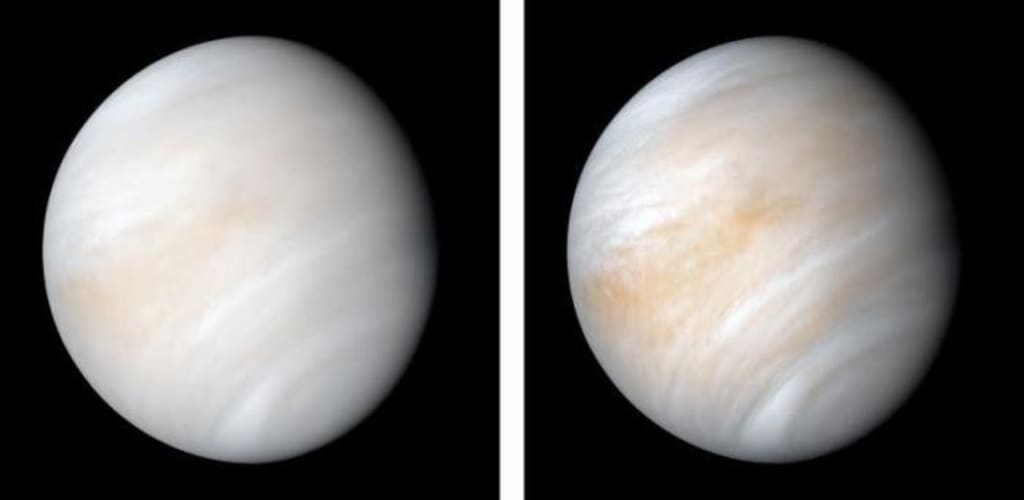How long is the longest day in the solar system? Venus gives the answer
longest day in the solar system

Data obtained by reflecting radio waves from Venus — treating Venus as a giant disco ball, says one scientist — shed new light on Earth's closest neighbor, including precisely calculating the duration of Venus' day .
The study also measured the inclination of Venus's axis and the size of its core, providing insights into the mysterious world sometimes referred to as Earth's "evil twin."
It is already known that Venus has the longest days in the solar system, the time it takes for Venus to rotate once around its axis, although previous estimates have varied.
The study found that it takes 243.0226 Earth days for Venus to rotate. This means that a day on Venus is longer than a year, and it takes 225 Earth days for Venus to orbit the sun once.
From 2006 to 2020, the researchers sent radio waves to Venus 21 times from NASA's Goldstone antenna in California's Mojave Desert and studied at Goldstone and the Green Bank Observatory in West Virginia. radio echoes, which provide information about certain planetary characteristics.
"Each measurement was obtained by treating Venus as a giant disco ball. We illuminated Venus with a giant flashlight and Goldstone's radar and watched their reflections as they swept across the Earth's surface," Jean-Luc Margot, a professor of planetary astronomy at UCLA, said he led the study published in the journal Nature Astronomy.
"Venus is an amazing laboratory for understanding planet formation and evolution, and it's very close to us. There may be billions of Venus-like planets in the Milky Way."
The new data shows that Venus' planetary core is about 4,360 miles (7,000 kilometers) in diameter, about the same size as Earth's. Previous estimates of the Venusian core were based on computer simulations rather than observational data.
Its core is almost certainly composed of iron and nickel, although it's unclear whether it's solid or molten, Margot said.
Venus' rotation is nearly upright, meaning it has no noticeable seasonal changes, while Earth is more tilted. The study calculated that Venus has an inclination of about 2.64 degrees. Earth's temperature is about 23.5 degrees.
Venus, the second-most distant planet from the sun, is similar in structure to Earth but slightly smaller, with a diameter of about 7,500 miles (12,000 kilometers). Above this ominous sight is a thick layer of toxic atmosphere, composed mostly of droplets of carbon dioxide and sulfuric acid. Due to the runaway greenhouse effect, its surface reached 880 degrees Fahrenheit (471 degrees Celsius), hot enough to melt lead.
Venus rotates from east to west, in the opposite direction to the rotation of all the other planets in the solar system except Uranus. Another quirk is that its day-night cycle—the time between sunrises, not the time it takes to rotate on one axis—takes 117 Earth days because Venus spins in the opposite direction of its orbit around the sun.
Venus has received less scientific attention than Earth's other neighbor, Mars and other solar system destinations.
"If we had enough data, I don't think Venus would be any harder to understand than other planets, but data on Venus is very scarce," Margot said.
"NASA has not flown any missions to Mars in nearly 30 years, and NASA has flown 12 missions to Mars in that interval," Margot said. She added that the new discovery about how Venus spins could help any future landing attempts.
About the Creator
dardani lennon
The question mark is the key to any science
Enjoyed the story? Support the Creator.
Subscribe for free to receive all their stories in your feed. You could also pledge your support or give them a one-off tip, letting them know you appreciate their work.






Comments
There are no comments for this story
Be the first to respond and start the conversation.